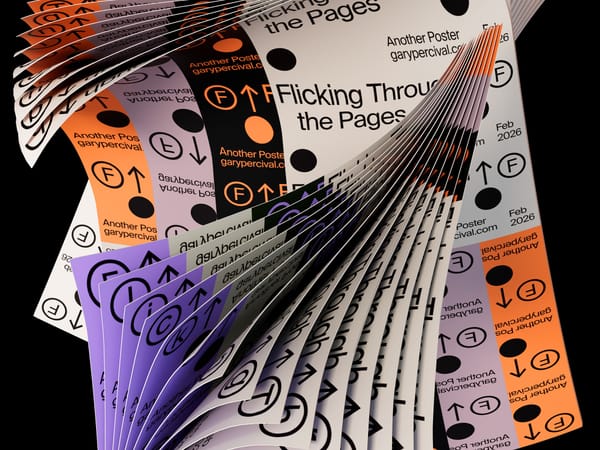You Don’t Have to Be Good at Everything: Focus on What You’re Meant to Do
“Your value lies not in being a universal solution but in embracing and honing what makes you exceptional.”
In today’s creative landscape, there’s immense pressure to be a jack-of-all-trades.
Social media and portfolio sites showcase designers who appear to excel at everything—from illustration and UX/UI to branding and motion design.
But here’s the liberating truth: You don’t need to master every skill to build a successful creative career.
The Myth of the Perfect Professional
Scrolling through social media can feel overwhelming, with colleagues seemingly excelling at everything: designing stunning visuals, managing flawless client relationships, and curating the perfect personal brand.
But the reality is this: that image is largely an illusion.
Behind polished Instagram feeds and glowing portfolios are human beings showcasing their strengths while hiding their limitations. No one excels at everything—and they don’t need to.
Understanding Your Unique Creative DNA
Every creative has a unique set of talents, passions, and skills—their creative DNA.
Some designers have a knack for crafting typography, while others shine in storytelling or problem-solving. Your value lies not in being a universal solution but in embracing and honing what makes you exceptional.
Rather than trying to be everything to everyone, focus on identifying and nurturing your strengths. It’s the key to impactful work and standing out in your field.
The Cost of Trying to Do It All
Spreading yourself too thin comes with a steep cost.
Trying to master every skill can:
- Lead to mediocre work across domains
- Increase stress and mental fatigue
- Hinder growth in areas where you truly excel
- Damage your professional reputation
- Diminish your joy and passion for creative work
Imagine a graphic designer juggling social media marketing, website development, and client relations while trying to maintain creative output. The result? Exhaustion and uninspired work. The solution lies in focusing on what you do best.
You don’t need to master every skill to build a successful creative career. By embracing your unique strengths and focusing on what you do best, you’ll produce higher-quality work, attract aligned clients, and rediscover the joy of your craft. Let go of the pressure to be good at everything—success lies in doing what you love brilliantly.
Discovering Your Creative Superpowers
Identifying your unique strengths requires self-reflection and external feedback.
Try these strategies:
Reflect on Past Successes
Look at projects that made you proud. Do they share themes or standout moments?
Ask Trusted Peers for Feedback
Mentors, colleagues, and clients often see our strengths more clearly than we do. Ask them what sets you apart.
Notice What Energises You
Pay attention to tasks that make you lose track of time. Which projects or challenges consistently bring you joy?
Use Skills Assessments
Tools or career coaching can provide insights into your talents and areas for specialisation.
The Power of Specialisation
Specialisation isn’t about limiting yourself—it’s about going deeper.
By focusing on a specific area, you can unlock:
- Higher-quality work: Expertise leads to exceptional results.
- Increased client trust: Specialists are seen as reliable authorities.
- Better pricing: Niche skills command higher rates.
- Stronger branding: A clear focus makes it easier to communicate your value.
- Personal fulfilment: Doing what you love brings satisfaction.
A specialist UI designer known for intuitive mobile interfaces will attract more aligned clients than a generalist dabbling in everything.
Complementing Your Weaknesses
Accepting you can’t excel at everything doesn’t mean ignoring weaknesses.
It means managing them strategically:
Collaborate with Others
Partner with creatives whose skills complement yours. For instance, a talented illustrator might team up with a branding expert to deliver comprehensive solutions.
Outsource Strategically
Delegate tasks outside your expertise. Platforms, tools, and freelancers can handle areas where you lack skill or interest.
Learn Smartly
Instead of mastering every skill, gain basic competence in adjacent areas that support your strengths.
The Freedom of Vulnerability and Authenticity
There’s power in saying, “That’s not my area of expertise.” Clients and collaborators value honesty over overpromising or pretending. Transparency builds trust and demonstrates integrity.
The Psychological Freedom of Focus
Letting go of the need to be good at everything is liberating. It reduces stress, creates mental space, and helps you rediscover the joy of your craft. Narrowing your focus makes your work more intentional, passionate, and impactful.
Your Unique Creative Journey
In a world that demands more, choosing to focus is a powerful statement. It’s an act of self-trust—a declaration that you believe in your unique talents and vision.
You’re not meant to do everything. You’re meant to do something specific—and do it brilliantly.
Let go of the pressure to be a universal creative. Embrace your strengths. Trust your instincts. Build a career that’s authentically yours.
Your creativity will thank you.
Thanks for reading, and wishing you a joyful festive season and a fantastic start to the New Year!
—Gary



